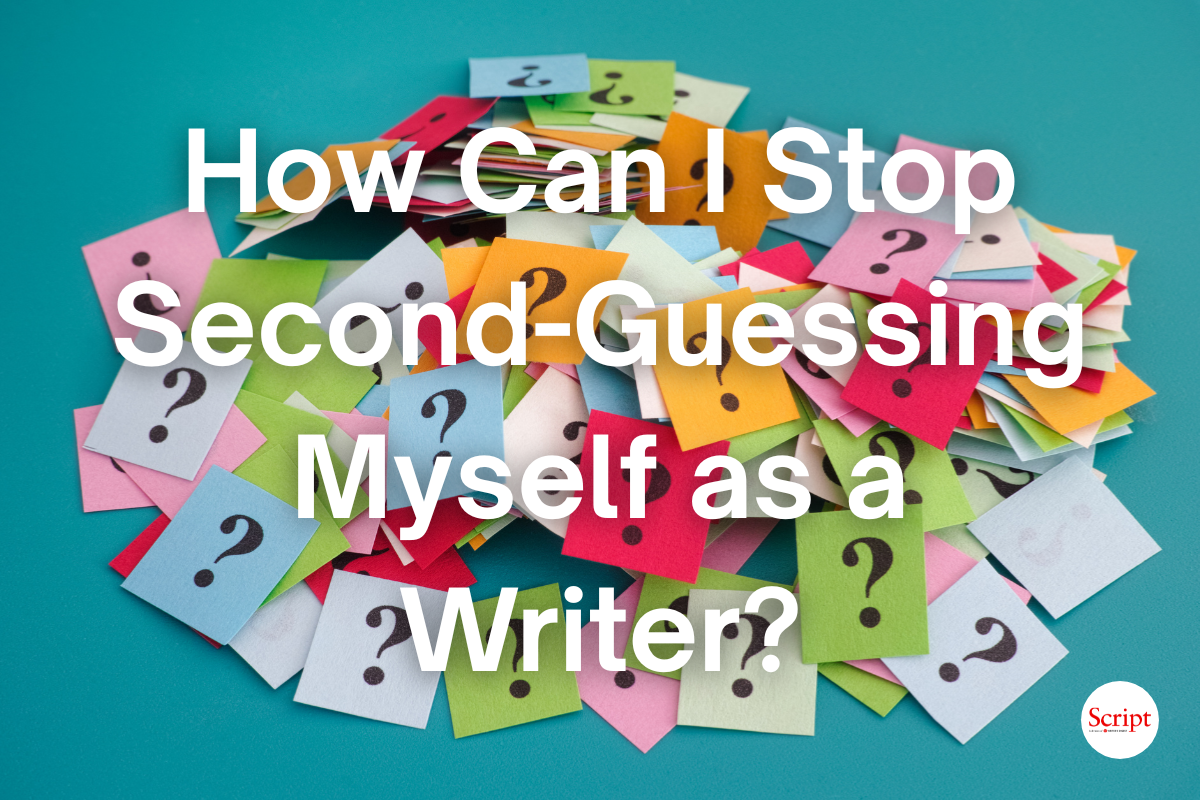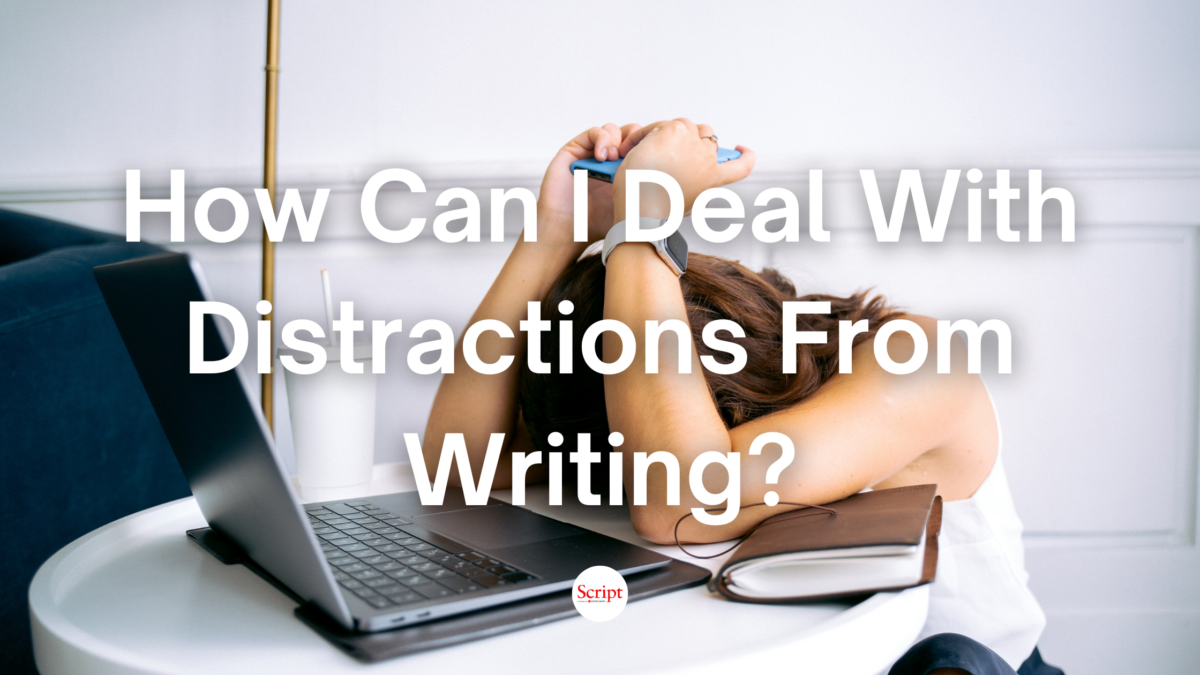How Do I Find the Theme For My Script?
Writing coach and Called to Write founder Jenna Avery responds to a reader about finding the theme for their story.
Welcome to “Ask the Coach.” As a writing coach, I answer questions from writers about making the work of writing happen, tackling craft, business, and personal questions along the way. (Have a question you’d like answered? Check the details at the end of the article about how to submit one.)
Today I’m responding to a reader question about finding the theme for a story:
“How can I find the theme for my story? It feels complicated and confusing to identify. Maybe even above my pay grade. ;) I know the story I’m writing… but the theme isn’t obvious to me.”
Ah, yes! The struggle with theme. Sometimes we know what our theme is, going into a story. Sometimes it sneaks up and hits us on the back of the head only after we’ve finished multiple rewrites of a script. Sometimes we never quite know and only understand theme through the lens another person brings to the story as a reader or viewer. Sometimes the audience even identifies themes we didn’t know were there, or didn’t intend.
Many writers struggle with theme. Some story gurus will say that theme isn’t important, or isn’t as important as other story building blocks. Others will tell you theme absolutely critical to keeping your story on point.
I fall into the camp of treating it as a useful story development and refinement tool.
Stories should be about something, obviously. Examining theme — our underlying intention — can take us into the deeper meaning of a story. Once identified, theme can serve as a guidepost and decision-making tool for key story elements like the title, opening, climax, and resolution, the main character’s arc, and more. And while we can clarify and enhance these elements with our theme, once we know it, these story elements can also be used to help us identify our theme.
In other words, it works both ways.
Theme begets story, story begets theme.
If you’re wanting to find the theme in a story, take a deeper look at some of the following aspects of your writing.
1. Who are you as a writer?
Many writers have recurring themes in both their personal lives and scripts. What do you tend to write about? What do you notice your stories have in common?
Look there for recurring themes.
For example, multiple scripts of mine explore the question, “what happens after we die?” That’s a recurring theme for me, as a writer and storyteller. I also see story questions in my writing around death-related themes, along the lines of “what happens to us when we are consumed by grief?” These story questions have evolved directly out of my personal trains of thought and life experiences.
2. Why are you writing this story?
What led you to write this story in the first place?
Screenwriter Jeff Howard points to this as a primary way of discovering your theme — looking for the “why” behind your choice to write this script, along with how you’re wanting people to feel or change as a result of experiencing your story.
Are you hoping to illuminate an idea, a feeling, a change with your story? How would you put that into words?
You might try filling in the blanks of these statements:
- “I’m writing this because ________________ is important to me.”
- “I want people to feel ________________ after seeing my show/movie.”
- “I want to people to change/grow/shift their views/minds/feelings about ________________ as they watch.”
These are just a starting place. You’re welcome to rewrite them however works for you — but the point is to to put words on the page to helps you discover what you think, so if you’re feeling stuck on theme, give these a try, and see what happens.
3. What’s the main character’s journey?
Along the lines of how you want your audience to feel or change, Jeff Howard also recommends you keep in mind the main character’s journey, or arc. That’s where and how the theme is expressed, and how and where we, as the audience, go on a thematic journey with the main character.
How does your main character grow and change over the story? That’s the journey we’re experiencing — the character, the writer, and the audience. What does the main character learn? Feel? What mistakes do they make repeatedly and have to overcome?
In my most recent script, my main character undergoes an overwhelming-yet-powerful reunion with a person she’s lost and blamed herself for losing, and who comes out the other side trusting and believing in herself again. We could say the theme there is “becoming whole after loss,” or even “grief.”
4. What does your title reveal about your theme?
If you’re working with a draft or outline of a script, sometimes there are clues in your title to point you to the theme.
As an example, I was recently reminded of a ’90s movie called Where the Heart Is (there are two movies with this title). It’s a story of how some young adults are forced to set up a place to live in an abandoned building after their father kicks them out. But without even knowing those details, we can infer from the title the thematic theme, “what is home?”
The title answers the thematic question.
5. What do your opening, climax, and world building point to?
Similarly, how does your story open — what’s the opening image, the location, the experience you begin with? How does it end? What happens in the climax? What’s the world like? These too will give you a sense of your theme and clues to find it.
The script I mentioned earlier opens with a teen alien crashing her ship on Earth, immediately raising, among other things, a sense of otherworldliness, which ties directly back into the core premise of my script, “what happens after we die?”
With the story’s climax, remember that it is the ultimate expression of your character’s journey. What personal issues have they faced and overcome in order to meet this moment? Just as we looked at your character’s arc, above, we look at where they end up at the story’s final confrontational moment. What’s the final “battle” over? How does the main character win or resolve this battle? What does that tell you about your theme?
With your world building, what visual and physical choices are you making for the story, and what do they tell you about what your story is about? The wide open spaces of Westerns often represent individualism, or isolation, for example. What does that say to you about the theme in those instances
That’s a Wrap
Perhaps I’ve raised more questions than provided answers here, about theme. I submit to you, however, that you are the one most qualified to identify the theme(s) in your story. And my hope, and intent, is to provide you with a series of clues and questions to help you get there.
And, once you find your theme, use it! If you don’t have a title yet, aren’t clear on your character’s arc, don’t have your opening or climax solved, etc., try using your theme to brainstorm solutions.
As Paddy Chayefsky (as quoted by Robert McKee), said, “As soon as I figure out what the theme of my play is, I type it out in one line and Scotch-tape it to the front of my typewriter. After that, nothing goes into the play that is not on-theme.”
I’d love to hear what you discover about your theme. You can often find me on Bluesky or on my website at www.jennaavery.com.
Screenwriters, what challenges and blocks are you wrestling with right now? Share them with me for support and suggestions, take the survey, or email me directly at support@jennaavery.com. Look for answers to selected questions in the monthly “Ask the Coach” column on the third Thursday of the month.
Find me on Bluesky: @jennaavery.bsky.social







